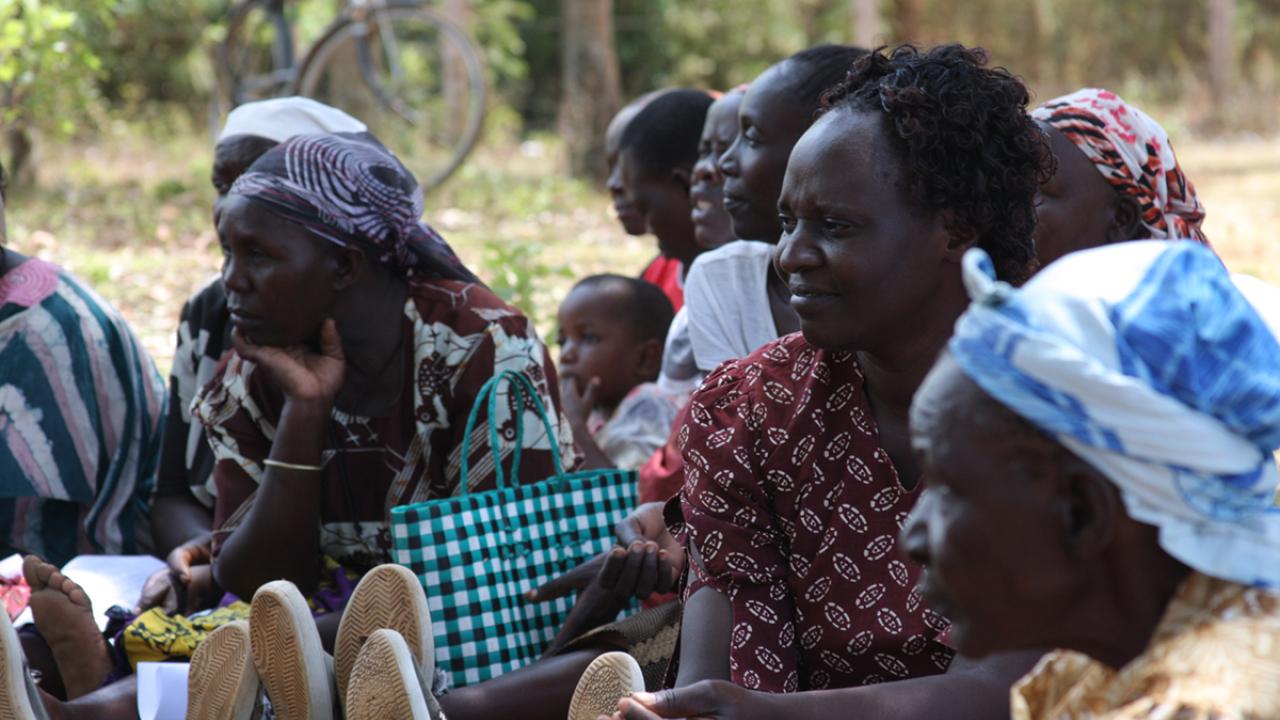
New Research in Kenya Tests Digital Advisories to Promote Resilience in Farming Communities
Farmers disproportionately bear the burden of climate change and the extreme unpredictable weather it brings. This is particularly true in Sub-Saharan Africa, where in the past year alone farmers in some areas have faced severe drought while others experienced heavy, unseasonal rains. Timely and actionable information could help farmers to maintain their main source of food and income in a changing climate.
With support from USAID, a research team from the Tegemeo Institute of Agricultural Policy and Development at Egerton University, Kenya, has launched new research to evaluate the impacts of a government program that provides farmers weather and market information to their phones. This US $449,255 (KSH 49,597,752) three-year study is testing how access to weather and market advisories could help farmers adapt to climate change while increasing their overall productivity and resilience.
“Kenya’s agriculture is mostly rain-fed and hence highly susceptible to raising temperatures and drought,” said Dr. Mercy Kamau, the project’s principal investigator and senior research fellow at Tegemeo Institute. “Innovations that enhance farmers’ ability to adapt to climate change such as weather information for decision making are critical, particularly for women and other vulnerable groups.”
Leveraging Information and Communications Technology (ICT) for Agriculture
A lack of information can create barriers for farmers to adapt to climate change. According to the United Nations Environment Programme, adaptation reduces vulnerability to climate change by increasing the ability to absorb its impacts and remain resilient. For farmers, adaptation strategies include improved seeds and other inputs that increase productivity as well as climate-smart technologies, innovations and management practices (TIMPS) that reduce farmers’ exposure to climate risks.
Agro-weather and market advisories are central to the Kenya Climate Smart Agriculture Project (KCSAP), a 2017-2022 Government of Kenya project jointly supported by the World Bank to benefit small-scale farming communities. The KCSAP sends these advisories by text message to farmers’ phones as a way to empower them to increase their agricultural productivity and adapt to climate change.
KCSAP also leverages the expertise of government agencies to tailor the advisories for individual rural communities. The Kenya Meteorology Department (MED) contributes localized weather forecasts to 30 days without compromising on accuracy. The Kenya Agricultural and Livestock Research Organization (KALRO) guides farmers in selecting climate adaptation strategies that will be most effective for their agro-ecological zones and priority value chains.
Kamau and her team are evaluating the impacts of the KCSAP while also building the first evidence from a national program on how weather and market advisories impact farmers’ decision making related to climate adaptation. This multi-faceted study will measure these advisories’ impacts on productivity and household wellbeing, how farmers perceive and value them, as well as how to improve access to them particularly for women and other vulnerable groups.
“A country-wide government project providing agro-weather advisories through digital and conventional channels offers an opportunity to verify the already existing evidence at scale, and inform on opportunities for further investments,” said Kamau.
Leading Research on Rural Resilience
Agriculture is critical for Kenya’s economy. According to World Bank data, agriculture accounts for over half of GDP and employment and is the main source of the nation’s exports. Agriculture is the largest source of income for all households in Kenya’s rural areas.
Kenya is also disproportionately vulnerable to climate change. The Centre for Global Development ranks Kenya 13th out of 233 countries for direct risks from extreme weather and 71st of 233 for overall vulnerability to climate change.
“Changes in rainfall and temperature patterns threaten agricultural production and increase the vulnerability of people dependent on agriculture for their livelihoods,” said Kamau.
The project is funded by the Feed the Future Advancing Local Leadership & Innovation Networks (ALL-IN) initiative, an innovative collaboration between the Kenya-based development think tank International Center for Evaluation and Development (ICED) and the U.S.-based Feed the Future Innovation Lab for Markets, Risk & Resilience at the University of California, Davis.
ALL-IN builds on research capacity in African countries by inverting the traditional model of research collaborations led from U.S. universities. With funding through ALL-IN, researchers at African institutions lead these collaborations, leveraging their local knowledge, skills, ideas and networks to build actionable evidence for effective policy.
“ALL-IN projects are led by researchers who understand the context and culture on this continent and who are closely related to policy makers and understand the intricacies of policy,” said ICED president and CEO David Ameyaw.
